In Focus This Week
Bolstering Elections
Dole and Kennedy Institutes publish landmark report on funding of election administration
By M. Mindy Moretti
electionline.org
News headlines often scream about how much is spent on elections in America, but those news stories focus on the campaign side of the coin. Very little news is ever generated on how much it actually costs state and local officials to administer an election.
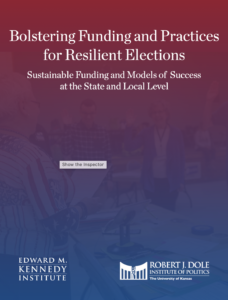 Time and time again, the diverse system of conducting elections in the United States – created by the various states and their local jurisdictions – has reflected the will of their voters and promoted the peaceful transfer of power at the federal, state, and local level. Yet, this system is complex and under historic stress. Election administrators continually lack sufficient budgets, adequate staffing, and modernized equipment. Moreover, they face ever-increasing public scrutiny and waning trust in voting results.
Time and time again, the diverse system of conducting elections in the United States – created by the various states and their local jurisdictions – has reflected the will of their voters and promoted the peaceful transfer of power at the federal, state, and local level. Yet, this system is complex and under historic stress. Election administrators continually lack sufficient budgets, adequate staffing, and modernized equipment. Moreover, they face ever-increasing public scrutiny and waning trust in voting results.
The federal government, however, remains absent due to the reduced role they have in administering elections. The Constitution leaves the responsibility of determining the “time, place, and manner” of elections to the states.
It wasn’t until 2002 that Congress began taking steps to create a national standard for administering an election with the Help America Vote Act (HAVA). Furthermore, with election security becoming more prevalent, the Department of Homeland Security designated elections administration a critical infrastructure. But while both offer new guidelines for administration and security, they offer little in terms of sustainable funding models for states and local jurisdictions to draw from in order to meet their present-day needs.
To that end, the Robert J. Dole Institute of Politics and the Edward M. Kennedy Institute for the United States Senate have published a landmark, comprehensive anthology report – “Bolstering Funding and Practices for Resilient Elections: Sustainable Funding and Models of Success at the State and Local Level,” – designed to equip election administrators with the data and research necessary to inform policymakers about the need for increased investment in our elections infrastructure to bolster our elections systems.
The report was created through the organization’s Bolstering Elections Initiative with production of the report made possible by a grant from the Election Trust Initiative.
“At its core, this report is inspired by the bipartisan engagement and leadership of our namesakes; and like the meaningful change Senators Dole and Kennedy brought about during the 20th century, our hope is that this report will be used by policymakers to bring about much needed, bipartisan change in the ways we fund and support election administration in the United States,” said Audrey Coleman, director of the Robert J. Dole Institute of Politics and Adams Hinds, CEO of the Edward M. Kennedy Institute for the United States Senate.
In February 2024, the institutes invited administrators and policy experts to a symposium that aimed to examine why understanding how the more than 8,000 election jurisdictions across the country are funded is such a complex issue.
As the researchers, practitioners, and experts who contributed to this report show, it doesn’t have to be; highlighting models of success creates a starting point for policymakers to make significant investments in elections administration, including through the creation of more stable funding streams at all levels. This gives election administrators access to a larger budget, which can be used to adequately staff their offices and procure modernized resources, thereby bolstering the efficiency in administering an election and improving public trust in elections systems and results.
Additional takeaways from the report include:
- Local governments fund approximately 85% of the costs associated with administering an election, despite surveys showing the public believes federal and state government bear a majority of the cost burden
- Research shows that even with local governments paying a majority of the costs, election support is roughly 0.5% of a local government’s total budget
- Election administrators and offices are under-resourced, particularly in rural areas, with many facing staffing shortages and outdated infrastructure
- Federal funding and guidelines for administering elections are episodic, often reactive to the most recent election issue (e.g., 2000 Election recount in Florida, 2020 Coronavirus Pandemic), creating unsustainable funding mechanisms and inconsistent national standards for local governments to rely on
- States interpret and fulfill their election responsibilities in a variety of ways, with some creating innovations that show promise (e.g., Colorado’s cost-based reimbursement model, Pennsylvania’s Act 88) but are not widespread
The Institutes will hold a virtual event to formally launch the report on Wednesday, June 18 at 12 p.m. EST/11 a.m. CST with some of the nation’s top experts in elections administration; including University of Kansas professor Zach Mohr; Auburn University Professor of Political Science Mitchell Brown; Commissioner Donald Palmer of the U.S. Election Assistance Commission; Bipartisan Policy Center Election Project director Rachel Orey; Colorado Deputy Director of Elections Hilary Rudy; and John Fortier, Senior Fellow at the American Enterprise Institute.
About the Dole Institute
Inspired by the leadership legacies of Senators Bob and Elizabeth Dole, and the enduring civic contributions of the Greatest Generation, the Dole Institute of Politics strives to promote a new era of leadership that uses politics to bring people together through opportunities that emphasize bipartisan cooperation, public service, and civic education and engagement.
About the Edward M. Kennedy Institute
The Edward M. Kennedy Institute for the United States Senate is dedicated to educating the public about the important role of the Senate in our government, encouraging participatory democracy, invigorating civil discourse, and inspiring the next generation of citizens and leaders to engage in the civic life of their communities. The Institute benefits from the robust participation of national leaders on its Board of Directors, including 8 former US Senators.
(Election Center Chief Programs Officer Tammy Patrick served as a senior advisor to the report.)
electionline Daily News Email
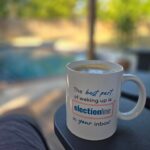 What’s the best part of waking up? electionline Daily News in your inbox of course so be sure to sign up for your daily dose.
What’s the best part of waking up? electionline Daily News in your inbox of course so be sure to sign up for your daily dose.
Each morning you’ll receive the top headlines of the day, plus a listing of states featured in that day’s news round up.
To sign up, simply visit our site and provide us with your email and you’ll begin receiving the news in your inbox each morning.
We Google so you don’t have to!
Upcoming Schedule Changes
 electionlineWeekly: Due to federal holidays, electionlineWeekly will not publish on Thursday, June 19 and Thursday July 3.
electionlineWeekly: Due to federal holidays, electionlineWeekly will not publish on Thursday, June 19 and Thursday July 3.
electionline Daily News: The Daily News will not post on Friday, July 4. Additionally, the Daily News will post by 10 am Eastern on several occasions during the upcoming summer months including but not limited to June 13, June 23, July 14 and August 20-22. Reminders will appear in the Daily News email the day before the late post.
Election News This Week
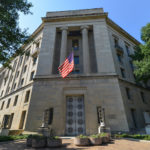 Federal Update I: Miles Parks and Jude Joffe-Block with NPR have a story today about the U.S. Department of Justice demanding an unprecedented amount of election data from Colorado. According to documents obtained by NPR, on May 12, the Justice Department asked Colorado’s secretary of state to turn over “all records” relating to 2024 federal elections, as well as preserve any records that remain from the 2020 election — a sprawling request several voting experts and officials told NPR was highly unusual and concerning, given President Trump’s false claims about elections. “What they’re going to do with all this data, I don’t know,” said Colorado Secretary of State Jena Griswold, a Democrat. “But I’m sure they will use it to push their ridiculous disinformation and lies to the American public.” The request could be interpreted to include voter registration materials, ballots and voting equipment, much of which is retained by counties, not the secretary of state. “It would be an enormous amount of information, and it’s very unlikely the DOJ would even know what to do with all of that,” said David Becker, former DOJ attorney and who now runs the nonpartisan Center for Election Innovation & Research (CEIR). “This appears more like a fishing expedition than it does some kind of targeted investigation.” The demand indicated that the Justice Department received a complaint about Colorado’s election records retention, but it’s not clear who filed the complaint or what the issue was. The department declined to comment or provide the complaint when asked about it by NPR.
Federal Update I: Miles Parks and Jude Joffe-Block with NPR have a story today about the U.S. Department of Justice demanding an unprecedented amount of election data from Colorado. According to documents obtained by NPR, on May 12, the Justice Department asked Colorado’s secretary of state to turn over “all records” relating to 2024 federal elections, as well as preserve any records that remain from the 2020 election — a sprawling request several voting experts and officials told NPR was highly unusual and concerning, given President Trump’s false claims about elections. “What they’re going to do with all this data, I don’t know,” said Colorado Secretary of State Jena Griswold, a Democrat. “But I’m sure they will use it to push their ridiculous disinformation and lies to the American public.” The request could be interpreted to include voter registration materials, ballots and voting equipment, much of which is retained by counties, not the secretary of state. “It would be an enormous amount of information, and it’s very unlikely the DOJ would even know what to do with all of that,” said David Becker, former DOJ attorney and who now runs the nonpartisan Center for Election Innovation & Research (CEIR). “This appears more like a fishing expedition than it does some kind of targeted investigation.” The demand indicated that the Justice Department received a complaint about Colorado’s election records retention, but it’s not clear who filed the complaint or what the issue was. The department declined to comment or provide the complaint when asked about it by NPR.
 Federal Update II: According to media reports, U.S. District Judge Denise Casper appeared open last week to blocking enforcement of President Donald Trump’s sweeping executive order overhauling elections that calls for requiring voters to prove they are U.S. citizens and barring states from counting mail-in ballots received after Election Day. At a hearing, Justice Department lawyer Bridget O’Hickey argued the Republican president’s order was lawful and that any request by 19 Democratic-led states challenging it was premature. But Casper said those states were under pressure to comply with Trump’s order before voting begins in the 2026 federal election cycle and that 13 of them that accept mail-in ballots postmarked by Election Day say they could be sued by the U.S. Department of Justice unless she issues an injunction. “Why isn’t that warranted now?” Casper asked. The House Appropriations Subcommittee on Homeland Security approved a fiscal 2026 funding bill this week that would cut the Cybersecurity and Infrastructure Security Agency by $135 million from fiscal 2025, significantly less than the Trump administration’s proposed $495 million. The chairman of the committee Rep. Mark Amodei, said the annual Department of Homeland Security funding measure “responsibly trimmed” the CISA budget. But Illinois Rep. Lauren Underwood, the top Democrat on his panel, said the legislation “fails to address the catastrophic cybersecurity threats facing our critical infrastructure.” The subcommittee approved the bill by a vote of 8-4. “In terms of cyber security, DHS has an important role to play defending critical infrastructure and Federal networks against cyber attack, but CISA strayed from the authority given to it by the Congress,” Amoedi said in a prepared opening statement. “We have responsibly trimmed that agency’s budget by eliminated duplicative contracts and positions, consolidated election security and chemical security missions into the existing critical infrastructure security framework, defunded equity positions and returned the focus of CISA to its core mission of protecting Federal networks, and ensuring that the days of censorship through mis-, dis- and mal- information efforts are over.”
Federal Update II: According to media reports, U.S. District Judge Denise Casper appeared open last week to blocking enforcement of President Donald Trump’s sweeping executive order overhauling elections that calls for requiring voters to prove they are U.S. citizens and barring states from counting mail-in ballots received after Election Day. At a hearing, Justice Department lawyer Bridget O’Hickey argued the Republican president’s order was lawful and that any request by 19 Democratic-led states challenging it was premature. But Casper said those states were under pressure to comply with Trump’s order before voting begins in the 2026 federal election cycle and that 13 of them that accept mail-in ballots postmarked by Election Day say they could be sued by the U.S. Department of Justice unless she issues an injunction. “Why isn’t that warranted now?” Casper asked. The House Appropriations Subcommittee on Homeland Security approved a fiscal 2026 funding bill this week that would cut the Cybersecurity and Infrastructure Security Agency by $135 million from fiscal 2025, significantly less than the Trump administration’s proposed $495 million. The chairman of the committee Rep. Mark Amodei, said the annual Department of Homeland Security funding measure “responsibly trimmed” the CISA budget. But Illinois Rep. Lauren Underwood, the top Democrat on his panel, said the legislation “fails to address the catastrophic cybersecurity threats facing our critical infrastructure.” The subcommittee approved the bill by a vote of 8-4. “In terms of cyber security, DHS has an important role to play defending critical infrastructure and Federal networks against cyber attack, but CISA strayed from the authority given to it by the Congress,” Amoedi said in a prepared opening statement. “We have responsibly trimmed that agency’s budget by eliminated duplicative contracts and positions, consolidated election security and chemical security missions into the existing critical infrastructure security framework, defunded equity positions and returned the focus of CISA to its core mission of protecting Federal networks, and ensuring that the days of censorship through mis-, dis- and mal- information efforts are over.”
 Citizenship: The Associated Press this week takes a look at the American Samoans in Alaska who are being prosecuted after trying to vote. They were born on U.S. soil, are entitled to U.S. passports and allowed to serve in the U.S. military, but 11 people in a small Alaska town are facing criminal charges after they tried to participate in a fundamental part of American democracy: voting. The defendants, who range in age from their 20s to their 60s, were all born in American Samoa — the only U.S. territory where residents are not automatically granted citizenship at birth. Prosecutors say they falsely claimed American citizenship when registering or trying to vote. The situation is not limited to Alaska. In Oregon, officials inadvertently registered nearly 200 American Samoan residents to vote when they got their driver’s licenses under the state’s motor-voter law. Of those, 10 cast ballots in an election, according to the Oregon Secretary of State’s office, but officials found they did not intend to break the law and no crime was committed. In Hawaii, one resident who was born in American Samoa, Sai Timoteo, ran for the state Legislature in 2018 before learning she wasn’t allowed to hold public office or vote. She also avoided charges.
Citizenship: The Associated Press this week takes a look at the American Samoans in Alaska who are being prosecuted after trying to vote. They were born on U.S. soil, are entitled to U.S. passports and allowed to serve in the U.S. military, but 11 people in a small Alaska town are facing criminal charges after they tried to participate in a fundamental part of American democracy: voting. The defendants, who range in age from their 20s to their 60s, were all born in American Samoa — the only U.S. territory where residents are not automatically granted citizenship at birth. Prosecutors say they falsely claimed American citizenship when registering or trying to vote. The situation is not limited to Alaska. In Oregon, officials inadvertently registered nearly 200 American Samoan residents to vote when they got their driver’s licenses under the state’s motor-voter law. Of those, 10 cast ballots in an election, according to the Oregon Secretary of State’s office, but officials found they did not intend to break the law and no crime was committed. In Hawaii, one resident who was born in American Samoa, Sai Timoteo, ran for the state Legislature in 2018 before learning she wasn’t allowed to hold public office or vote. She also avoided charges.
 What’s In A Name: Move over Boaty McBoatface you may have some competition soon in the name game. The Santa Fe County, New Mexico Clerk’s Office has launched a public contest to name its ballot sorting machine. Residents are asked to submit either a creative, clever, or meaningful idea for naming the machine. The machine plays a key role in the county’s vote-by-mail process. It’s capable of scanning and sorting thousands of ballots per hour. “We’re seeing more and more voters take advantage of vote-by-mail,” said Katherine Clark, county clerk. “This machine, combined with our experienced elections team, helps us meet that demand while maintaining speed, accuracy, and public trust.” Submissions are open through June. Finalists will be selected by the Clerk’s Office, then presented for public voting later in the summer. We will for sure keep you posted!
What’s In A Name: Move over Boaty McBoatface you may have some competition soon in the name game. The Santa Fe County, New Mexico Clerk’s Office has launched a public contest to name its ballot sorting machine. Residents are asked to submit either a creative, clever, or meaningful idea for naming the machine. The machine plays a key role in the county’s vote-by-mail process. It’s capable of scanning and sorting thousands of ballots per hour. “We’re seeing more and more voters take advantage of vote-by-mail,” said Katherine Clark, county clerk. “This machine, combined with our experienced elections team, helps us meet that demand while maintaining speed, accuracy, and public trust.” Submissions are open through June. Finalists will be selected by the Clerk’s Office, then presented for public voting later in the summer. We will for sure keep you posted!
 Podcast News: In this episode of High Turnout Wide Margins, hosts Eric Fey and Brianna Lennon speak with Cristy Lynn, the County Clerk and Recorder in Ouray County, Colorado. She and many of fellow county officials are politically unaffiliated, which means they do not represent or run as a member of either major political party. They spoke about Lynn’s decision to run unaffiliated, how her community has responded to that decision and why she believes this could be a way to bridge the divisiveness of the current political landscape at the local level. In the latest episode of The Voting Booth from the American Enterprise Institute, co-hosts John Fortier and Don Palmer are joined by Russ Nobile, Senior Attorney at Judicial Watch.
Podcast News: In this episode of High Turnout Wide Margins, hosts Eric Fey and Brianna Lennon speak with Cristy Lynn, the County Clerk and Recorder in Ouray County, Colorado. She and many of fellow county officials are politically unaffiliated, which means they do not represent or run as a member of either major political party. They spoke about Lynn’s decision to run unaffiliated, how her community has responded to that decision and why she believes this could be a way to bridge the divisiveness of the current political landscape at the local level. In the latest episode of The Voting Booth from the American Enterprise Institute, co-hosts John Fortier and Don Palmer are joined by Russ Nobile, Senior Attorney at Judicial Watch.
Personnel News: The Fulton County, Georgia Board of Commissioners reappointed Sherri Allen as chairwoman of the Registration and Elections Board. Holly Barrett and John May have joined the Dawson County, Georgia board of elections. Kelly Herrick is the new Bucksport, Maine clerk. Amherst, Massachusetts Town Clerk Susan Audette has retired. Shawano County, Wisconsin Clerk Kara Skarlupka has announced her retirement.
New Research & Resources
 Poll Workers: In 2024, the Center for Civic Design conducted a research project to learn more about poll workers across the country. Specifically, they wanted to understand the relationship poll workers have with each other and with voters. CCDs small but mighty team of civic designers across the United States served as poll workers for the 2024 General Election as part of this ethnographic participant observation research study. Their observations highlighted how poll workers humanize and personalize the election process, creating a culture that shapes the voting experience. Elections are often the single touchpoint that connects voters to our electoral democracy, with poll workers being the “face of elections.”
Poll Workers: In 2024, the Center for Civic Design conducted a research project to learn more about poll workers across the country. Specifically, they wanted to understand the relationship poll workers have with each other and with voters. CCDs small but mighty team of civic designers across the United States served as poll workers for the 2024 General Election as part of this ethnographic participant observation research study. Their observations highlighted how poll workers humanize and personalize the election process, creating a culture that shapes the voting experience. Elections are often the single touchpoint that connects voters to our electoral democracy, with poll workers being the “face of elections.”
 Trust in Elections, Arizona: The American election system is highly decentralized and relies on state and local governments to set policy and administer elections. This structure results in significant variation in how different jurisdictions run elections, creating opportunities for states to learn from each other’s successes, challenges, and best practices. To explore these differences and promote cross-state learning, R Street has developed a policy study series focused on the unique blend of election policies in place in three swing states that have played pivotal roles in recent federal elections: Arizona, Georgia, and Pennsylvania. In recent years, Arizona has emerged as a competitive state in high-profile national campaigns, drawing increased attention to the mechanics of how the state conducts its elections. Three aspects of Arizona’s system offer meaningful contrasts with other state approaches. First, Arizona is one of only two states with a citizenship verification requirement to vote; this is particularly relevant at this time because of the growing interest among Republican lawmakers to adopt this type of policy nationwide. Second, the state has a long history of allowing mail-in voting to promote engagement and accessibility, but, despite their democratic benefits, such policies have created challenges in counting ballots in a timely manner. Third, the state boasts one of the largest populations of unaffiliated voters in the country, making primary reform particularly worthy of consideration.
Trust in Elections, Arizona: The American election system is highly decentralized and relies on state and local governments to set policy and administer elections. This structure results in significant variation in how different jurisdictions run elections, creating opportunities for states to learn from each other’s successes, challenges, and best practices. To explore these differences and promote cross-state learning, R Street has developed a policy study series focused on the unique blend of election policies in place in three swing states that have played pivotal roles in recent federal elections: Arizona, Georgia, and Pennsylvania. In recent years, Arizona has emerged as a competitive state in high-profile national campaigns, drawing increased attention to the mechanics of how the state conducts its elections. Three aspects of Arizona’s system offer meaningful contrasts with other state approaches. First, Arizona is one of only two states with a citizenship verification requirement to vote; this is particularly relevant at this time because of the growing interest among Republican lawmakers to adopt this type of policy nationwide. Second, the state has a long history of allowing mail-in voting to promote engagement and accessibility, but, despite their democratic benefits, such policies have created challenges in counting ballots in a timely manner. Third, the state boasts one of the largest populations of unaffiliated voters in the country, making primary reform particularly worthy of consideration.
 Audits of 2020: This study quantifies the accuracy of vote counting in a collection of highly contested and consequential electoral contests. The authors – Samuel Baltzk, Fernanda Gonzalez, Kevin Guo, Jacob Jaffe and Charles Stewart III – compiled every available audit of votes cast in the 2020 United States elections at the county level or higher, and we used this election audit database to produce nation-scale numerical estimates of how accurately votes were counted. The authors find that the net error rate in counting presidential votes was on the order of thousandths of a percent, with similarly inconsequential errors for other state and federal contests. This nation-scale estimate of the accuracy of vote counting in a large federalist democracy suggests an approach for researchers to positively establish the legitimacy of fair electoral contests. After many elections, the accuracy of the vote count is assessed by retabulating a small percentage of ballots. These audits form one of the richest bodies of evidence regarding electoral legitimacy, which is particularly important in democracies where the accuracy of elections has been prominently questioned. In decentralized democracies such as the United States, however, there is tremendous variation in the conduct and reporting of audits, which are never compiled into one place to facilitate precise analysis of their results. Here, the authors introduce a nation-scale audit result dataset, which we use to estimate the error rate in vote counting during the 2020 U.S. election.
Audits of 2020: This study quantifies the accuracy of vote counting in a collection of highly contested and consequential electoral contests. The authors – Samuel Baltzk, Fernanda Gonzalez, Kevin Guo, Jacob Jaffe and Charles Stewart III – compiled every available audit of votes cast in the 2020 United States elections at the county level or higher, and we used this election audit database to produce nation-scale numerical estimates of how accurately votes were counted. The authors find that the net error rate in counting presidential votes was on the order of thousandths of a percent, with similarly inconsequential errors for other state and federal contests. This nation-scale estimate of the accuracy of vote counting in a large federalist democracy suggests an approach for researchers to positively establish the legitimacy of fair electoral contests. After many elections, the accuracy of the vote count is assessed by retabulating a small percentage of ballots. These audits form one of the richest bodies of evidence regarding electoral legitimacy, which is particularly important in democracies where the accuracy of elections has been prominently questioned. In decentralized democracies such as the United States, however, there is tremendous variation in the conduct and reporting of audits, which are never compiled into one place to facilitate precise analysis of their results. Here, the authors introduce a nation-scale audit result dataset, which we use to estimate the error rate in vote counting during the 2020 U.S. election.
Call for Papers and Proposals
 Professional Practice Papers: The Professional Practice Program is an opportunity to highlight excellence in election professionalism at the Election Center’s National Conference. The deadline for submissions is June 16, 2025 at 11:59pm ET. Any papers submitted after the deadline will not be considered. All materials submitted become the property of the Election Center and will be published on the Election Center website. Materials submitted will not be returned to entrants. Award winners will be determined using the PPP Selection and Processing Guide. The Election Center shall decide whether to present each award in any given year. Applicants need not designate a category.
Professional Practice Papers: The Professional Practice Program is an opportunity to highlight excellence in election professionalism at the Election Center’s National Conference. The deadline for submissions is June 16, 2025 at 11:59pm ET. Any papers submitted after the deadline will not be considered. All materials submitted become the property of the Election Center and will be published on the Election Center website. Materials submitted will not be returned to entrants. Award winners will be determined using the PPP Selection and Processing Guide. The Election Center shall decide whether to present each award in any given year. Applicants need not designate a category.
 Election Science Conference-within-a-Conference: The 2026 Election Science Conference-within-a-Conference (CwC), co-organized by Lisa Bryant (California State University, Fresno) and Joshua Ferrer (American University), is now open for proposal submissions. The CwC will be part of the Southern Political Science Association (SPSA) Annual Meeting, which will be held January 14-17, 2026 in New Orleans, Louisiana. The submission deadline is August 15, 2025. We hope to elicit broad participation from those focused on Election Law, Election Administration, Election Sciences, State and Local Politics, Voting and Voting Rights, Public Opinion, and Public Administration circles. For this CwC, we invite submissions in all areas of election sciences. We encourage submissions from all scholars, including practitioners, researchers in advocacy organizations, those from underrepresented backgrounds, graduate students, and early career scholars. Proposals can focus on the American electoral context, as well as the international or comparative electoral environments and systems. Possible topics include, but are not limited to: public opinion about elections, election administration and procedures, voter confidence, threats to election officials (and their implications), voter disenfranchisement, voting methods and voter experiences, racial/ethnic disparities in access to registration and voting, changes in election laws and election reform, elite rhetoric in how election results are processed and reported, voter turnout and behavior. The CwC will include approximately 10-12 panels of 4-5 papers each, with all panels likely occurring over 1.5 days for ease of attendance (exact dates and times to be announced later). Panel proposals or roundtable proposals are also welcome. If you are part of an organized panel, all papers should submit individually and indicate they are part of a panel. Per the conference organizers, please DO NOT SUBMIT TO THE SPSA CONFERENCE WEBSITE IF YOU ARE SUBMITTING TO THE CWC. This results in papers being double booked at the conference. Please don’t hesitate to reach out to us with any questions at: lbryant@csufresno.edu (Lisa Bryant) or jferrer2017@gmail.com (Joshua Ferrer).
Election Science Conference-within-a-Conference: The 2026 Election Science Conference-within-a-Conference (CwC), co-organized by Lisa Bryant (California State University, Fresno) and Joshua Ferrer (American University), is now open for proposal submissions. The CwC will be part of the Southern Political Science Association (SPSA) Annual Meeting, which will be held January 14-17, 2026 in New Orleans, Louisiana. The submission deadline is August 15, 2025. We hope to elicit broad participation from those focused on Election Law, Election Administration, Election Sciences, State and Local Politics, Voting and Voting Rights, Public Opinion, and Public Administration circles. For this CwC, we invite submissions in all areas of election sciences. We encourage submissions from all scholars, including practitioners, researchers in advocacy organizations, those from underrepresented backgrounds, graduate students, and early career scholars. Proposals can focus on the American electoral context, as well as the international or comparative electoral environments and systems. Possible topics include, but are not limited to: public opinion about elections, election administration and procedures, voter confidence, threats to election officials (and their implications), voter disenfranchisement, voting methods and voter experiences, racial/ethnic disparities in access to registration and voting, changes in election laws and election reform, elite rhetoric in how election results are processed and reported, voter turnout and behavior. The CwC will include approximately 10-12 panels of 4-5 papers each, with all panels likely occurring over 1.5 days for ease of attendance (exact dates and times to be announced later). Panel proposals or roundtable proposals are also welcome. If you are part of an organized panel, all papers should submit individually and indicate they are part of a panel. Per the conference organizers, please DO NOT SUBMIT TO THE SPSA CONFERENCE WEBSITE IF YOU ARE SUBMITTING TO THE CWC. This results in papers being double booked at the conference. Please don’t hesitate to reach out to us with any questions at: lbryant@csufresno.edu (Lisa Bryant) or jferrer2017@gmail.com (Joshua Ferrer).
Ballot Measures, Legislation & Rulemaking
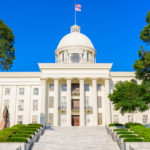 Alabama: A collection of bills aimed to enhance voting access in Alabama were never considered by committees during the 2025 legislative session, but advocates say the fight for enhanced voting rights in Alabama is not over HB 59, sponsored by Rep. Thomas Jackson, D-Thomasville, would have required one early voting precinct in each county for one week before Election Day. The bill was assigned to the House Constitution, Campaigns and Elections Committee, but Rep. Bob Fincher, R-Woodland, chair of the committee, said he did not take HB 59 up in his committee because he is not in favor of early voting due to the cost to the state. HB 97, sponsored by Rep. Kenyatté Hassell, D-Montgomery, would have allowed voters to cure their absentee ballot affidavit if they submit them before the election and the absentee election manager finds an error. Currently, the ballots are set aside and not counted if election officials find a defect with the affidavits. The bill was assigned to Fincher’s committee, but Fincher said he did not take it up because of conversations with other legislators and the Secretary of State Wes Allen. HB 31, sponsored by Rep. Adline Clarke, D-Mobile, allows people with a disability, or those unable to read or write, to designate someone to assist them with delivering an absentee ballot application or the absentee ballot itself, to the election manager.
Alabama: A collection of bills aimed to enhance voting access in Alabama were never considered by committees during the 2025 legislative session, but advocates say the fight for enhanced voting rights in Alabama is not over HB 59, sponsored by Rep. Thomas Jackson, D-Thomasville, would have required one early voting precinct in each county for one week before Election Day. The bill was assigned to the House Constitution, Campaigns and Elections Committee, but Rep. Bob Fincher, R-Woodland, chair of the committee, said he did not take HB 59 up in his committee because he is not in favor of early voting due to the cost to the state. HB 97, sponsored by Rep. Kenyatté Hassell, D-Montgomery, would have allowed voters to cure their absentee ballot affidavit if they submit them before the election and the absentee election manager finds an error. Currently, the ballots are set aside and not counted if election officials find a defect with the affidavits. The bill was assigned to Fincher’s committee, but Fincher said he did not take it up because of conversations with other legislators and the Secretary of State Wes Allen. HB 31, sponsored by Rep. Adline Clarke, D-Mobile, allows people with a disability, or those unable to read or write, to designate someone to assist them with delivering an absentee ballot application or the absentee ballot itself, to the election manager.
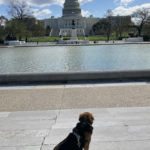 District of Columbia: U.S. House lawmakers voted this to repeal a law allowing noncitizens to vote in local DC elections. “The right to vote is a defining privilege of American citizenship,” Rep. James Comer (R-Kentucky), chairman of the House Oversight Committee, said on the House floor. “Diluting that right by extending it to noncitizens — whether here legally or illegally — undermines the voice of D.C. residents.” The vote to repeal the city’s noncitizen voting law marked the third time the House has sought to block the law in as many years, showing the GOP’s relentless mission to stop the policy ever since it passed the D.C. Council in 2022. The repeal effort has repeatedly garnered broad bipartisan support, with 56 Democrats joining Republicans in the 266-148-1 vote this time, a slight uptick from previous years.
District of Columbia: U.S. House lawmakers voted this to repeal a law allowing noncitizens to vote in local DC elections. “The right to vote is a defining privilege of American citizenship,” Rep. James Comer (R-Kentucky), chairman of the House Oversight Committee, said on the House floor. “Diluting that right by extending it to noncitizens — whether here legally or illegally — undermines the voice of D.C. residents.” The vote to repeal the city’s noncitizen voting law marked the third time the House has sought to block the law in as many years, showing the GOP’s relentless mission to stop the policy ever since it passed the D.C. Council in 2022. The repeal effort has repeatedly garnered broad bipartisan support, with 56 Democrats joining Republicans in the 266-148-1 vote this time, a slight uptick from previous years.
 Maine: Lawmakers advanced a bill this week to allow ranked choice voting to be used in statewide elections, including for governor. If enacted, the bill may set up a confrontation in court. The Maine Supreme Judicial Court issued a 2017 advisory opinion that using ranked choice voting for state-level offices conflicted with the state Constitution, which says such offices are determined by who gets the most votes. Currently, ranked choice voting is used in Maine for federal offices and in gubernatorial and state-level primary elections. Some cities, such as Portland and Westbrook, also use ranked choice voting for local elections. The bill, sponsored by Sen. Cameron Reny, D-Round Pond, cleared both chambers this week in mostly party-line votes, with Democrats in favor and Republicans opposed. It narrowly passed in an initial 72-70 vote in the House of Representatives on Wednesday with seven people absent and it cleared the Senate 20-14 without debate on June 10. The bill faces additional votes in each chamber before it can be sent to Gov. Janet Mills, whose aides did not respond to questions about the proposal. Opponents argued that the bill would conflict with the Maine Law Courts’ advisory opinion and would expand a system that is confusing to some voters. But proponents said a case decided by the Alaska Supreme Court dismantled Maine’s advisory opinion and upheld the constitutionality of the system.
Maine: Lawmakers advanced a bill this week to allow ranked choice voting to be used in statewide elections, including for governor. If enacted, the bill may set up a confrontation in court. The Maine Supreme Judicial Court issued a 2017 advisory opinion that using ranked choice voting for state-level offices conflicted with the state Constitution, which says such offices are determined by who gets the most votes. Currently, ranked choice voting is used in Maine for federal offices and in gubernatorial and state-level primary elections. Some cities, such as Portland and Westbrook, also use ranked choice voting for local elections. The bill, sponsored by Sen. Cameron Reny, D-Round Pond, cleared both chambers this week in mostly party-line votes, with Democrats in favor and Republicans opposed. It narrowly passed in an initial 72-70 vote in the House of Representatives on Wednesday with seven people absent and it cleared the Senate 20-14 without debate on June 10. The bill faces additional votes in each chamber before it can be sent to Gov. Janet Mills, whose aides did not respond to questions about the proposal. Opponents argued that the bill would conflict with the Maine Law Courts’ advisory opinion and would expand a system that is confusing to some voters. But proponents said a case decided by the Alaska Supreme Court dismantled Maine’s advisory opinion and upheld the constitutionality of the system.
A bill aimed at requiring voters to show a photo ID before voting has failed. It didn’t make it out of committee at the State House. LD 38 would have required the secretary of state to provide free IDs to people who need them. The Republican initiative aimed to reassure Mainers that state elections are secure, though some Republicans admit there is no widespread voter fraud in the state. Even though the bill is dead in Augusta, Maine voters will still get to have their say on this issue in November after a citizen’s petition put a voter ID question on the ballot.
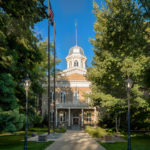 Nevada: Governor Joe Lombardo has vetoed Assembly Bill 105, which would have prohibited firearms in, or within a certain distance of, an election site. The bill would have also required the county clerk, city clerk, or registrar of voters to post a sign at each election site notifying people that having a firearm at the site was prohibited and listing the possible penalties. The bill passed 27 to 14 with one excused in the State Assembly, and passed 13 to 8 in the State Senate. In his veto message, Governor Lombardo said that the bill was commendable in its intent to enhance public confidence in the safety of our election process. However, he went on to say that the bill simply duplicated protections already established under federal and state law against voter intimidation.
Nevada: Governor Joe Lombardo has vetoed Assembly Bill 105, which would have prohibited firearms in, or within a certain distance of, an election site. The bill would have also required the county clerk, city clerk, or registrar of voters to post a sign at each election site notifying people that having a firearm at the site was prohibited and listing the possible penalties. The bill passed 27 to 14 with one excused in the State Assembly, and passed 13 to 8 in the State Senate. In his veto message, Governor Lombardo said that the bill was commendable in its intent to enhance public confidence in the safety of our election process. However, he went on to say that the bill simply duplicated protections already established under federal and state law against voter intimidation.
 New Hampshire: The House made it more difficult to vote by absentee ballot passing several bills that will require more information to vote in absentia. The House also failed to change the state’s primary election day from September to June, and decided cities and towns have to purge their voter checklists yearly instead of once in a decade. The House voted to require that people registering for an absentee ballot will now have to present proof they are a United States citizen to receive the ballot. Supporters of Senate Bill 218, said the bill simply brings the requirements to register for an absentee ballot in line with registering to vote in person by adding a person needs to prove citizenship through a birth certificate, passport or naturalization papers. Women who changed their names when they married would need to provide proof of the change from their maiden name. The bill passed on a 192-149 vote and goes to the Senate because of changes the House made. The House also approved Senate Bill 287 which will require a photo ID to obtain an absentee ballot. The House also approved a bill that would require town and city clerks to purge their checklist annually. Currently the lists are purged every 10 years. The House voted down Senate Bill 222 which would have changed the state’s primary from the second Tuesday in September to the second Tuesday in June.
New Hampshire: The House made it more difficult to vote by absentee ballot passing several bills that will require more information to vote in absentia. The House also failed to change the state’s primary election day from September to June, and decided cities and towns have to purge their voter checklists yearly instead of once in a decade. The House voted to require that people registering for an absentee ballot will now have to present proof they are a United States citizen to receive the ballot. Supporters of Senate Bill 218, said the bill simply brings the requirements to register for an absentee ballot in line with registering to vote in person by adding a person needs to prove citizenship through a birth certificate, passport or naturalization papers. Women who changed their names when they married would need to provide proof of the change from their maiden name. The bill passed on a 192-149 vote and goes to the Senate because of changes the House made. The House also approved Senate Bill 287 which will require a photo ID to obtain an absentee ballot. The House also approved a bill that would require town and city clerks to purge their checklist annually. Currently the lists are purged every 10 years. The House voted down Senate Bill 222 which would have changed the state’s primary from the second Tuesday in September to the second Tuesday in June.
 Vermont: A sweeping elections bill that has been years in the making is advancing at the Vermont Statehouse. Since first implementing universal vote by mail during the pandemic, other election policy proposals in the past few sessions failed to make it to the finish line. But lawmakers this week were able to strike a deal advancing a bipartisan bill. The measure is a big priority for state elections officials who say the changes are needed to make the 2026 election run smoother. Changes include auditing voter checklists and district boundaries; requiring write-in candidates to register in primary elections, and ways to streamline the counting of those ballots. The measure also restricts candidates who lose a party primary to run for the general election under a different party or as an Independent — what is known as “taking a second bite of the apple.” A provision to have ranked-choice voting for the next presidential primary was not included in the bill.
Vermont: A sweeping elections bill that has been years in the making is advancing at the Vermont Statehouse. Since first implementing universal vote by mail during the pandemic, other election policy proposals in the past few sessions failed to make it to the finish line. But lawmakers this week were able to strike a deal advancing a bipartisan bill. The measure is a big priority for state elections officials who say the changes are needed to make the 2026 election run smoother. Changes include auditing voter checklists and district boundaries; requiring write-in candidates to register in primary elections, and ways to streamline the counting of those ballots. The measure also restricts candidates who lose a party primary to run for the general election under a different party or as an Independent — what is known as “taking a second bite of the apple.” A provision to have ranked-choice voting for the next presidential primary was not included in the bill.
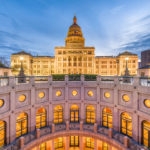 Texas: Texans will have a new schedule for early voting in coming years under new legislation that starts the voting period later but slides it right up to Election Day, eliminating the three-day break in between. According to Votebeat, experts say Senate Bill 2753, which lawmakers approved this week, will likely boost turnout, as it includes more time for voting on weekends. The author of the bill, Sen. Bob Hall, a Republican from North Texas, told Votebeat that the change also “simplifies the process” and would reduce the cost of election operations and equipment. But local election officials said they aren’t so sure of that, and are still determining how it will work and what it could cost counties. The bill doesn’t allocate any funding for counties to implement the changes. And there’s one notable side effect of taking away the gap after the early-voting period: Partial vote tallies from the early ballots, which are typically released shortly after polls close on Election Day, won’t be available until later, election administrators said. The bill is headed to Gov. Greg Abbott’s desk for his signature, though it can become law without it.
Texas: Texans will have a new schedule for early voting in coming years under new legislation that starts the voting period later but slides it right up to Election Day, eliminating the three-day break in between. According to Votebeat, experts say Senate Bill 2753, which lawmakers approved this week, will likely boost turnout, as it includes more time for voting on weekends. The author of the bill, Sen. Bob Hall, a Republican from North Texas, told Votebeat that the change also “simplifies the process” and would reduce the cost of election operations and equipment. But local election officials said they aren’t so sure of that, and are still determining how it will work and what it could cost counties. The bill doesn’t allocate any funding for counties to implement the changes. And there’s one notable side effect of taking away the gap after the early-voting period: Partial vote tallies from the early ballots, which are typically released shortly after polls close on Election Day, won’t be available until later, election administrators said. The bill is headed to Gov. Greg Abbott’s desk for his signature, though it can become law without it.
 Washington: Initiative Measure No. IL26-126 is sponsored by Rep. Jim Walsh, R-Aberdeen, the Chairman of the Washington State Republican Party. Walsh and others want to strengthen the integrity of the state’s voter database by requiring verification of citizenship for voter registration. Under the initiative, county auditors would determine whether each person on the voter list has demonstrated proof of citizenship. Those who have not will be notified to produce this documentation or be dropped from the registration list and would not receive a ballot. The verification requirements could be met if people produce documentation such as a U.S. passport, a birth certificate, or a certificate of naturalization. “It focuses on the voter ID, the proof of citizenship to register to vote. That’s the only thing it does. It does not touch vote-by-mail mechanisms,” Walsh said. “In the big picture, would we like to see some of those other reforms here in Washington? Yes, but we believe that the voter ID part is the first step and we may address those others later.”
Washington: Initiative Measure No. IL26-126 is sponsored by Rep. Jim Walsh, R-Aberdeen, the Chairman of the Washington State Republican Party. Walsh and others want to strengthen the integrity of the state’s voter database by requiring verification of citizenship for voter registration. Under the initiative, county auditors would determine whether each person on the voter list has demonstrated proof of citizenship. Those who have not will be notified to produce this documentation or be dropped from the registration list and would not receive a ballot. The verification requirements could be met if people produce documentation such as a U.S. passport, a birth certificate, or a certificate of naturalization. “It focuses on the voter ID, the proof of citizenship to register to vote. That’s the only thing it does. It does not touch vote-by-mail mechanisms,” Walsh said. “In the big picture, would we like to see some of those other reforms here in Washington? Yes, but we believe that the voter ID part is the first step and we may address those others later.”
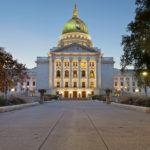 Wisconsin: There were five statewide referendum questions on the ballot in 2024 and now lawmakers on both sides of the aisle have proposed bills aimed at simplifying ballot questions. Both Democrat and Republican lawmakers proposed separate legislation aimed at making statewide referendum questions easier for voters to understand. While state law already mandates that referendum questions must be written concisely and in the affirmative, it does not require questions to be written in plain language — a way that makes them easily understandable for the general public. Both bills aim to make referendum questions and constitutional amendments easier to understand for Wisconsin voters, though they differ on how that would be accomplished. The Democrat-authored bill would require referendum questions to be written in plain language to avoid tricky phrasing that could confuse voters. In addition to using plain language for questions on the ballot, the bill would require referendum questions related to constitutional amendments to clarify for voters whether the proposed changes already exist in state statute. On the other side of the aisle, Rep. Jerry O’Connor, R-Fond Du Lac, said that rather than just putting the questions in plain language, the bill he co-authored goes a step farther by creating an informational notice with the full text of the referendum question or proposed amendment, an explanation in plain language what a “yes” or “no” vote means and a summary of current law in plain text, if applicable.
Wisconsin: There were five statewide referendum questions on the ballot in 2024 and now lawmakers on both sides of the aisle have proposed bills aimed at simplifying ballot questions. Both Democrat and Republican lawmakers proposed separate legislation aimed at making statewide referendum questions easier for voters to understand. While state law already mandates that referendum questions must be written concisely and in the affirmative, it does not require questions to be written in plain language — a way that makes them easily understandable for the general public. Both bills aim to make referendum questions and constitutional amendments easier to understand for Wisconsin voters, though they differ on how that would be accomplished. The Democrat-authored bill would require referendum questions to be written in plain language to avoid tricky phrasing that could confuse voters. In addition to using plain language for questions on the ballot, the bill would require referendum questions related to constitutional amendments to clarify for voters whether the proposed changes already exist in state statute. On the other side of the aisle, Rep. Jerry O’Connor, R-Fond Du Lac, said that rather than just putting the questions in plain language, the bill he co-authored goes a step farther by creating an informational notice with the full text of the referendum question or proposed amendment, an explanation in plain language what a “yes” or “no” vote means and a summary of current law in plain text, if applicable.
Legal Updates
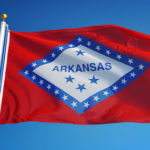 Arkansas: A three-judge federal court panel dismissed with prejudice a case challenging Arkansas’ congressional district map. The lawsuit was filed in the U.S. District Court for the Eastern District of Arkansas by a group of voters and the Christian Ministerial Alliance. It claimed boundaries for Arkansas’ 2nd Congressional District were racially gerrymandered and diluted the votes of Black Arkansans. Congressional and state legislative districts are redrawn after the U.S. Census each decade in a process known as redistricting. The goal is to create districts that contain roughly the same population. The Ministerial Alliance’s lawsuit was one of four filed to challenge Arkansas’ 2021 redistricting process and the only one that hadn’t been dismissed. U.S. Circuit Judge David Stras, U.S. District Judge D.P. Marshall Jr. and U.S. District Judge James Moody Jr. granted the state’s motion for summary judgment, saying there was not enough evidence to support the plaintiffs’ racial discrimination claims. “Multiple Arkansas citizens challenge how the General Assembly redrew the state’s congressional district lines,” Friday’s order states. “Although their allegations were plausible enough to survive a motion to dismiss [Docs. 35, 42], the evidence does not back up their claims of racial discrimination. For that reason, we grant summary judgment to Secretary of State John Thurston.”
Arkansas: A three-judge federal court panel dismissed with prejudice a case challenging Arkansas’ congressional district map. The lawsuit was filed in the U.S. District Court for the Eastern District of Arkansas by a group of voters and the Christian Ministerial Alliance. It claimed boundaries for Arkansas’ 2nd Congressional District were racially gerrymandered and diluted the votes of Black Arkansans. Congressional and state legislative districts are redrawn after the U.S. Census each decade in a process known as redistricting. The goal is to create districts that contain roughly the same population. The Ministerial Alliance’s lawsuit was one of four filed to challenge Arkansas’ 2021 redistricting process and the only one that hadn’t been dismissed. U.S. Circuit Judge David Stras, U.S. District Judge D.P. Marshall Jr. and U.S. District Judge James Moody Jr. granted the state’s motion for summary judgment, saying there was not enough evidence to support the plaintiffs’ racial discrimination claims. “Multiple Arkansas citizens challenge how the General Assembly redrew the state’s congressional district lines,” Friday’s order states. “Although their allegations were plausible enough to survive a motion to dismiss [Docs. 35, 42], the evidence does not back up their claims of racial discrimination. For that reason, we grant summary judgment to Secretary of State John Thurston.”
 California: The Fresno County Board of Supervisors said this week they will appeal a court ruling that elections for top law enforcement leaders must be held during presidential elections, when voter turnout is highest. The county lost the lawsuit last week brought by state Attorney General Rob Bonta and Secretary of State Shirley Weber, which argued setting the election on gubernatorial cycles was against state law. The supervisors discussed the case in closed session, and released a statement afterward. “The county respectfully disagrees with the superior court and intends to challenge the ruling in the court of appeal,” the statement read in full. The supervisors came to a consensus and no vote was taken, according to county spokesperson Sonja Dosti. A Fresno County Superior Court judge ruled June 2 to invalidate Fresno County’s Measure A. The 2024 ballot initiative that passed and aligned Fresno County District Attorney and Sheriff elections with the off cycle, which has a lower voter turnout than those on the presidential cycle. The measure passed with a 55% vote but was at odds with an earlier law, Assembly Bill 759, that aligned the elections. Gubernatorial races across the state routinely draw lower numbers of voters than presidential. The most recent presidential election in Fresno in 2024 saw an almost 60% turnout, while the off-cycle election two years earlier drew 27% of voters.
California: The Fresno County Board of Supervisors said this week they will appeal a court ruling that elections for top law enforcement leaders must be held during presidential elections, when voter turnout is highest. The county lost the lawsuit last week brought by state Attorney General Rob Bonta and Secretary of State Shirley Weber, which argued setting the election on gubernatorial cycles was against state law. The supervisors discussed the case in closed session, and released a statement afterward. “The county respectfully disagrees with the superior court and intends to challenge the ruling in the court of appeal,” the statement read in full. The supervisors came to a consensus and no vote was taken, according to county spokesperson Sonja Dosti. A Fresno County Superior Court judge ruled June 2 to invalidate Fresno County’s Measure A. The 2024 ballot initiative that passed and aligned Fresno County District Attorney and Sheriff elections with the off cycle, which has a lower voter turnout than those on the presidential cycle. The measure passed with a 55% vote but was at odds with an earlier law, Assembly Bill 759, that aligned the elections. Gubernatorial races across the state routinely draw lower numbers of voters than presidential. The most recent presidential election in Fresno in 2024 saw an almost 60% turnout, while the off-cycle election two years earlier drew 27% of voters.
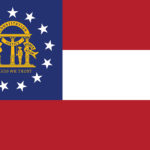 Georgia: This week, the state Supreme Court overturned four rules passed by the State Election Board just before last year’s general election, ruling the board overstepped its authority and intruded on lawmaking power reserved for legislators under the state constitution. The state Supreme Court’s unanimous decision limits the future rulemaking ability of the State Election Board and other executive branch agencies of Georgia’s government. The board passed a slate of new rules in August and September that mostly had to do with processes after ballots are cast, spawning a flurry of lawsuits. The new rules brought an outcry that the board’s majority was trying to improperly use its power to help Donald Trump. The board members claimed the changes were needed to improve the accuracy of results. Fulton County Superior Court Judge Thomas Cox ruled in October that seven of the rules were “illegal, unconstitutional and void,” but the board appealed. In its decision, the state Supreme Court invalidated the requirements that ballots be hand-counted after the close of polls, that someone delivering an absentee ballot in person provide a signature and photo ID, that county election board members be allowed to conduct a “reasonable inquiry” before certifying results and that county election board members be granted broad access to election-related documents. The court let stand a rule requiring video surveillance and recording of ballot drop boxes after polls close during early voting. It told a lower court to decide whether Chatham County Board of Elections member James Hall has the right to challenge two other rules, which expand designated areas where partisan poll watchers can stand at tabulation centers and require daily public updates of the number of votes cast during early voting. As part of its decision, the court overturned a 1990 decision that widened the rulemaking power of state agencies. Chief Justice Nels Peterson wrote that the decision was a mistake because it doesn’t “provide clear, objective guidelines that cabin an executive branch agency’s exercise of discretion.”
Georgia: This week, the state Supreme Court overturned four rules passed by the State Election Board just before last year’s general election, ruling the board overstepped its authority and intruded on lawmaking power reserved for legislators under the state constitution. The state Supreme Court’s unanimous decision limits the future rulemaking ability of the State Election Board and other executive branch agencies of Georgia’s government. The board passed a slate of new rules in August and September that mostly had to do with processes after ballots are cast, spawning a flurry of lawsuits. The new rules brought an outcry that the board’s majority was trying to improperly use its power to help Donald Trump. The board members claimed the changes were needed to improve the accuracy of results. Fulton County Superior Court Judge Thomas Cox ruled in October that seven of the rules were “illegal, unconstitutional and void,” but the board appealed. In its decision, the state Supreme Court invalidated the requirements that ballots be hand-counted after the close of polls, that someone delivering an absentee ballot in person provide a signature and photo ID, that county election board members be allowed to conduct a “reasonable inquiry” before certifying results and that county election board members be granted broad access to election-related documents. The court let stand a rule requiring video surveillance and recording of ballot drop boxes after polls close during early voting. It told a lower court to decide whether Chatham County Board of Elections member James Hall has the right to challenge two other rules, which expand designated areas where partisan poll watchers can stand at tabulation centers and require daily public updates of the number of votes cast during early voting. As part of its decision, the court overturned a 1990 decision that widened the rulemaking power of state agencies. Chief Justice Nels Peterson wrote that the decision was a mistake because it doesn’t “provide clear, objective guidelines that cabin an executive branch agency’s exercise of discretion.”
A man falsely accused of voting fraud in the conspiracy film “2000 Mules” tried to hold its producers responsible, asking a federal judge to rule in his favor. But the moviemakers, including conservative filmmaker Dinesh D’Souza and the election group True the Vote, said they couldn’t have defamed a man whose face was blurred and who wasn’t identified by name. U.S. District Judge Steven Grimberg didn’t signal how he would rule, asking skeptical questions of both sides before deciding whether to send the case to a jury or dismiss it. “This case is not that complicated. It’s about defendants working together to spread a lie,” said Lea Haber Kuck, an attorney for Mark Andrews, an auditor from Gwinnett County who brought the suit. “They accuse him of committing a crime … and expose him to ridicule, hatred and contempt.” The lawsuit centers on an eight-second surveillance video featured in “2000 Mules” that shows Andrews returning absentee ballots for himself and four family members at a drop box before the 2020 election. D’Souza, speaking as the narrator, tells the audience “What you are seeing is a crime. These are fraudulent votes.” State election investigators cleared Andrews, and D’Souza later apologized, saying the film was based on “inaccurate information.” Dropping off ballots for family members is legal in Georgia.
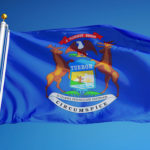 Michigan: The House of Representatives announced June 5 that it has filed a lawsuit against Secretary of State Jocelyn Benson for her alleged failure to comply with a subpoena issued by the chair of the chamber’s oversight body. The complaint, House of Representatives v. Benson, filed in the Michigan Court of Claims on Wednesday, follows the House Oversight Committee’s request for election training materials from Benson and her office, which resulted in a subpoena. House Oversight Committee Chair Rep. Jay DeBoyer (R-Clay Township) last month asked the full chamber to hold Benson in civil contempt for her alleged failure to provide the materials, which the House moved as a resolution later that day. Now, the chamber’s Republicans have sued Benson seeking a declaratory judgment holding that the House issued a valid subpoena to which the secretary of state must comply. That lawsuit also seeks an injunction prohibiting Benson or the Michigan Department of State from modifying relevant records in the initial request. Department spokesperson Cheri Hardmon said in a statement that Benson asked lawmakers to let a court review their request for sensitive information that, in the wrong hands, would compromise the security of the state’s elections.
Michigan: The House of Representatives announced June 5 that it has filed a lawsuit against Secretary of State Jocelyn Benson for her alleged failure to comply with a subpoena issued by the chair of the chamber’s oversight body. The complaint, House of Representatives v. Benson, filed in the Michigan Court of Claims on Wednesday, follows the House Oversight Committee’s request for election training materials from Benson and her office, which resulted in a subpoena. House Oversight Committee Chair Rep. Jay DeBoyer (R-Clay Township) last month asked the full chamber to hold Benson in civil contempt for her alleged failure to provide the materials, which the House moved as a resolution later that day. Now, the chamber’s Republicans have sued Benson seeking a declaratory judgment holding that the House issued a valid subpoena to which the secretary of state must comply. That lawsuit also seeks an injunction prohibiting Benson or the Michigan Department of State from modifying relevant records in the initial request. Department spokesperson Cheri Hardmon said in a statement that Benson asked lawmakers to let a court review their request for sensitive information that, in the wrong hands, would compromise the security of the state’s elections.
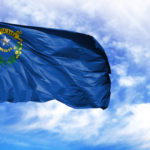 Nevada: Former elections chief Cari-Ann Burgess has filed a lawsuit against Washoe County, detailing what she calls a toxic work environment, coercion and retaliation.Burgess was sidelined throughout the final weeks of the 2024 election when Washoe was in the national spotlight as a swing county in a swing state for the presidential race. At the time, the county put out a statement that she was stressed and had requested time off for self-care. She said this was not true. Her lawsuit alleges county Manager Eric Brown and others coerced her to take personal leave and threatened her with insubordination and investigation if she talked about what was going on with the media, commissioners or staff. Her lawsuit also alleges: Assistant County Manager Kate Thomas engaged in “a pattern of bullying and harassment” against her.; Her privacy was violated by revealing personal health information regarding anxiety and high blood pressure; And that the county’s public comments about her have hurt future job prospects. The county terminated her employment on Feb. 12. “The county is in the process of reviewing the amended complaint, which was only recently filed and served,” said Kendall Holcomb, Washoe County District Attorney’s Office spokesperson. “We plan to file a response and vigorously defend the action. Due to pending litigation, we have no further comment at this time.” Washoe County has until July 31 to reply to Burgess’ complaint.
Nevada: Former elections chief Cari-Ann Burgess has filed a lawsuit against Washoe County, detailing what she calls a toxic work environment, coercion and retaliation.Burgess was sidelined throughout the final weeks of the 2024 election when Washoe was in the national spotlight as a swing county in a swing state for the presidential race. At the time, the county put out a statement that she was stressed and had requested time off for self-care. She said this was not true. Her lawsuit alleges county Manager Eric Brown and others coerced her to take personal leave and threatened her with insubordination and investigation if she talked about what was going on with the media, commissioners or staff. Her lawsuit also alleges: Assistant County Manager Kate Thomas engaged in “a pattern of bullying and harassment” against her.; Her privacy was violated by revealing personal health information regarding anxiety and high blood pressure; And that the county’s public comments about her have hurt future job prospects. The county terminated her employment on Feb. 12. “The county is in the process of reviewing the amended complaint, which was only recently filed and served,” said Kendall Holcomb, Washoe County District Attorney’s Office spokesperson. “We plan to file a response and vigorously defend the action. Due to pending litigation, we have no further comment at this time.” Washoe County has until July 31 to reply to Burgess’ complaint.
 Oregon: On June 6, the U.S. Department of Justice announced it would file a “statement of interest” in an ongoing suit between a number of conservative plaintiffs and the Oregon Secretary of State’s Office. The U.S. DOJ says it is watching the case closely for signs Oregon violated a federal law, the National Voter Registration Act. “Accurate voter registration rolls are critical to ensure that elections in Oregon are conducted fairly, accurately, and without fraud,” U.S. Assistant Attorney General Harmeet K. Dhillon said in a statement. “States have specific obligations under the list maintenance provisions of the NVRA, and the Department of Justice will vigorously enforce those requirements.” Oregon Secretary of State Tobias Read declined to comment on the filing, citing ongoing litigation. “What I can say is that we take our responsibility to maintain secure, accurate voter rolls seriously,” Read said in a statement. “Oregonians want and deserve fair and free elections, and we must do everything in our power to deliver.” The Oregon Department of Justice said it was researching the matter. At issue is a lawsuit filed in October by the national conservative group Judicial Watch, along with the Constitution Party of Oregon and two individual Oregonians, Suni Danforth and Hannah Shipman.
Oregon: On June 6, the U.S. Department of Justice announced it would file a “statement of interest” in an ongoing suit between a number of conservative plaintiffs and the Oregon Secretary of State’s Office. The U.S. DOJ says it is watching the case closely for signs Oregon violated a federal law, the National Voter Registration Act. “Accurate voter registration rolls are critical to ensure that elections in Oregon are conducted fairly, accurately, and without fraud,” U.S. Assistant Attorney General Harmeet K. Dhillon said in a statement. “States have specific obligations under the list maintenance provisions of the NVRA, and the Department of Justice will vigorously enforce those requirements.” Oregon Secretary of State Tobias Read declined to comment on the filing, citing ongoing litigation. “What I can say is that we take our responsibility to maintain secure, accurate voter rolls seriously,” Read said in a statement. “Oregonians want and deserve fair and free elections, and we must do everything in our power to deliver.” The Oregon Department of Justice said it was researching the matter. At issue is a lawsuit filed in October by the national conservative group Judicial Watch, along with the Constitution Party of Oregon and two individual Oregonians, Suni Danforth and Hannah Shipman.
 Pennsylvania: The U.S. Supreme Court has rejected a Republican appeal and left in place a Pennsylvania court decision allowing people to cast provisional ballots when their mail-in votes are rejected for not following technical procedures in state law. The court released the decision June 6, after an “apparent software malfunction” sent out early notifications about orders that had been slated to be released Monday. A technological error also resulted in an opinion being posted early last year. The justices acted in an appeal filed by the Republican National Committee, the state GOP and the Republican-majority election board in Butler County. Pennsylvania’s top court ruled last year that the county must count provisional ballots that were cast by two voters after they learned their mail-in ballots were voided because they arrived without mandatory secrecy envelopes. Pennsylvania Democrats had urged the court to stay out of the case.
Pennsylvania: The U.S. Supreme Court has rejected a Republican appeal and left in place a Pennsylvania court decision allowing people to cast provisional ballots when their mail-in votes are rejected for not following technical procedures in state law. The court released the decision June 6, after an “apparent software malfunction” sent out early notifications about orders that had been slated to be released Monday. A technological error also resulted in an opinion being posted early last year. The justices acted in an appeal filed by the Republican National Committee, the state GOP and the Republican-majority election board in Butler County. Pennsylvania’s top court ruled last year that the county must count provisional ballots that were cast by two voters after they learned their mail-in ballots were voided because they arrived without mandatory secrecy envelopes. Pennsylvania Democrats had urged the court to stay out of the case.
 Utah: Former gubernatorial candidate Phil Lyman filed a federal lawsuit against Utah Lt. Gov. Deidre Henderson on June 6, seeking access to voter registration data and arguing that Utah’s law allowing voters to make their information private runs afoul of federal law. Lyman, a former state lawmaker, has long claimed Utah’s elections are fraudulent and sought to obtain the complete voter rolls after losing the GOP primary to Gov. Spencer Cox last summer. Lyman regularly accused Henderson, the state’s top election official, of fraud and tried to have her and Cox thrown out of office. His latest lawsuit, however, doesn’t allege any malfeasance on Henderson’s part but says Utah’s law on private voter records conflicts with the National Voter Registration Act of 1993, which requires that voter registration records be public. The suit was filed in U.S. District Court with the help of the Public Interest Legal Foundation, a conservative firm based in Virginia that has filed similar suits in other states and made claims of voter fraud. A spokesman for Henderson said the Utah Lieutenant Governor’s Office does not comment on active or pending litigation.
Utah: Former gubernatorial candidate Phil Lyman filed a federal lawsuit against Utah Lt. Gov. Deidre Henderson on June 6, seeking access to voter registration data and arguing that Utah’s law allowing voters to make their information private runs afoul of federal law. Lyman, a former state lawmaker, has long claimed Utah’s elections are fraudulent and sought to obtain the complete voter rolls after losing the GOP primary to Gov. Spencer Cox last summer. Lyman regularly accused Henderson, the state’s top election official, of fraud and tried to have her and Cox thrown out of office. His latest lawsuit, however, doesn’t allege any malfeasance on Henderson’s part but says Utah’s law on private voter records conflicts with the National Voter Registration Act of 1993, which requires that voter registration records be public. The suit was filed in U.S. District Court with the help of the Public Interest Legal Foundation, a conservative firm based in Virginia that has filed similar suits in other states and made claims of voter fraud. A spokesman for Henderson said the Utah Lieutenant Governor’s Office does not comment on active or pending litigation.
Opinions This Week
National Opinions: CISA | Defamation lawsuit | Non voters | U.S. Department of Justice
Arizona: Election fraud
California: Marin County
Florida: Election legislation
Indiana: Vote centers
Iowa: Election law changes
Louisiana: Voting equipment
Nevada: Ballot counting | Voter ID
New Jersey: Primary day
Ohio: Ballot measures
Washington: Vote by mail | Ballot counting
Wisconsin: Election lies
Upcoming Events
New Mexico Association of Counties (NMC) Annual Conference: When: June 16-19.
America at 250: The American Revolution and the Constitution: The year 2026 marks the 250th anniversary of American independence, offering an opportunity to celebrate our country and reflect on its character and history. In the seventh symposium of AEI’s “We Hold These Truths: America at 250” initiative, scholars of American history, law, and politics discuss how the American Revolution unleashed the forces of constitution-making in the United States. As states erected new governments in the wake of independence, they worked to combine traditions of colonial self-government with both classical and novel political theories. Studying the revolutionary period shows how it gave birth to a constitutional culture that shaped the delegates and debates that would forge the nation’s enduring Constitution in 1787. When: June 17. Where: Washington, DC and online.
“Bolstering Funding and Practices for Resilient Elections” Virtual Launch Event: Join the Dole Institute and the Edward M. Kennedy Institute for the United States Senate for the launch of the landmark report created through the Bolstering Elections Initiative, “Bolstering Funding and Practices for Resilient Elections: Sustainable Funding and Models of Success at the State and Local Level.” Moderated by former election administrator and senior advisor to the Bolstering Elections Initiative Tammy Patrick, this virtual event will feature insights and analysis from some of the researchers, practitioners, and experts who contributed to this report. Additional panelists forthcoming. Support for this project was provided by the Election Trust Initiative. This event was made possible through funding from Democracy Fund. When: June 18, 12pm Eastern. Where: Online.
iGO Summer Conference: The International Association of Government Officials will hold their summer conference in Kansas City, Missouri from June 20-24. Please refer to the iGO website for more information and to register for the event.
Georgia Municipal Association-Municipal Election Superintendent 2025 Annual Convention: When: June 20-24. Where: Savannah.
57th Annual Association of Arkansas Counties (AACC) Conference: When: June 25-27. Where: Rogers/Benton County.
Massachusetts Town Clerks Association (MTCA)Conference 2: When: June 26. Where: Plymouth.
Ohio Secretary of State’s Summer Conference: When: June 30-July 1. Where: Columbus.
2025 National Association of Counties Annual Conference & Exposition: The National Association of Counties (NACo) Annual Conference is the premier gathering of elected and appointed officials from the nation’s 3,069 counties, parishes and boroughs. Conference content includes discussion of federal policies impacting counties, workshops lifting up county best practices, engaging general sessions, mobile tours across our host county, and more. NACo members also have the opportunity to influence the association’s direction and future during the Annual Business Meeting on the final day of the conference. When: July 11-14. Where: Philadelphia.
NASED Summer Conference: The National Association of State Election Directors will hold its summer conference in Oklahoma from July 22-24. Please refer to the NASED website for more information and to register for the event.
NASS Summer Conference: The National Association of Secretaries of State will hold its summer conference in Biloxi, Mississippi from August 4-7. Please refer to the NASS website for more information and to register for the event.
Election SATs: Security, Accuracy and Transparency: If you’re a leader on elections policy, this NCSL precon is for you. Join with peers from throughout the nation to share the latest on accuracy, security and access to the ballot. We will have sessions on cybersecurity, primaries, funding, cast vote records, campaign finance, election consolidation and post-election audits. When: Aug. 3. Where: Boston
National Conference of State Legislatures Summit: NCSL is bringing the Legislative Summit back to Boston! Join us Aug. 4-6 to connect with legislators and staff from across the nation at an event jam-packed with great speakers, eye-opening policy sessions and after-hours experiences at some of Boston’s coolest venues. Help NCSL celebrate its 50th anniversary in style. When: August 4-6. Where: Boston
Election Center Annual Conference: The Election Center Annual Conference will be held in Salt Lake City. The conference will run August 20-22 and CERA courses will be offered August 23 and 24. The CERA courses offered will be: Course 5 (Ethics); Course 6 (Communications & Public Relations); and Two renewal courses to be announced. When: August 20 to 24. Where: Salt Lake City.
Protecting the Election: AI and Governance Conference at WashU: Join us for this two-day in-person research and practitioner conference at WashU on October 16-17, 2025, to discuss research regarding AI and governance and how this applies to U.S. elections. Research topics include how chatbots can be used to engage with voters, how social media influences voters, what the electorate knew (or did not know) about the candidates and issues during recent elections, misinformation in elections, rhetoric about election integrity, and AI strategies for the administration of elections. We will also hear from practitioners during the conferences about their experiences with and needs for AI in recent elections and their intentions for future use of AI in elections. When: Oct. 16-17. Where: St. Louis.
Job Postings This Week
electionlineWeekly publishes election administration job postings each week as a free service to our readers. To have your job listed in the newsletter, please send a copy of the job description, including a web link to mmoretti@electionline.org. Job postings must be received by 5pm on Wednesday in order to appear in the Thursday newsletter. Listings will run for three weeks or till the deadline listed in the posting.
Ballot Services Manager, Denver Clerk & Recorder– The Denver Clerk & Recorder is seeking an accomplished elections professional to serve as the Ballot Services Manager to manage the functions and operations of the Ballot Services team. The Ballot Services Manager will lead the Ballot Services team and our voter-centric programs by: Managing a dedicated team of three full-time staff members that administer the Division’s mail ballot program, accessible voting programs, and ballot processing functions; Collaborating with internal and external stakeholders to equitably administer accessible, reliable, and secure elections; Developing, refining, and implementing policies, programs, and standard operating procedures for the Ballot Services team; Supervising and approving procedures and training for election judges in the team’s areas, and ensuring the Division’s ballot processing procedures are in compliance with local, state, and federal election laws; Training and supervising election judge staff and providing recommendations for staffing needed to perform ballot and petition processing functions; Overseeing the petition verification process in SCORE (Statewide Colorado Registration and Election database); Acting as a subject matter expert in elections and ballot processing by continuously reviewing Colorado election laws and rules to accurately inform internal and external partners and staff; Fostering an environment of innovation, championing continuous improvement, challenging the organization to think creatively, especially as it relates to a positive voter experience and increasing public trust; Ensuring the team’s mission, vision, and goals are in alignment with agency strategic imperatives; Contributing to the development of performance goals, documenting team member performance, providing performance feedback, and formally evaluating team member performance; Coaching, mentoring, and challenging the team, including by leading staff training and development initiatives; Collaborating with internal partners to fulfill open records requests; and Performing other duties as assigned or requested. Salary Range: $98,682 – $162,826. Deadline: June 27. Application: For the complete job listing and to apply, click here.
City Clerk, Madison, Wisconsin– Are you ready to take on a high-impact role that defines the heartbeat of Madison’s government? As City Clerk, you’ll be at the helm of critical city operations, ensuring democracy runs smoothly, records are meticulously kept, and policies drive positive change. This isn’t just a job—it’s a mission! This is your chance to lead, plan, and execute diverse programs with precision and purpose. You’ll be the architect of Madison’s election processes, the guardian of official city documents, and the force behind vital licensing and permit systems. Every decision you make will shape the city’s future. Oversee the Clerk’s Office, providing visionary leadership and strategic direction; Ensure seamless elections, developing and implementing processes that uphold integrity; Manage licensing and permits, keeping Madison’s businesses and residents on track; Preserve city records, safeguarding critical documents as the custodian of official information; Support the Common Council, administering and recording proceedings with precision; and Influence policy, collaborating with city managers and leaders to drive impactful initiatives. Salary: $120,778 – $163,050. Deadline: June 23. Application: For the complete job listing and to apply, click here.
Community Engagement Coordinator, North Charleston, South Carolina– Partner with the Community Engagement Manager to identify and expand non-partisan community relationships. Cultivate connections with local businesses and civic organizations to boost visibility and support. Solicit and analyze community feedback to enhance outreach strategies. Create brochures, flyers, presentations, and digital content to educate the public about elections and voting procedures.Collaborate with the Marketing and Communications Manager to maintain clear, consistent, and timely messaging across platforms. Manage and update the outreach section of the agency’s website. Deliver presentations and training during outreach events. Plan and coordinate mid-scale public events such as National Voter Registration Day and poll worker appreciation initiatives. Represent BVRE at outreach events, tabling opportunities, and community meetings. Track outreach activity and report on engagement metrics and outcomes. Support special projects including the “I Voted” sticker contest, Adopt a Polling Location, and poll worker recruitment. Research best practices to enhance and expand outreach programming. Assist in maintaining a centralized repository of outreach materials and resources. Salary: $50,440 – $66,060. Application: For the complete job listing and to apply, click here.
Election Administrator, Yellowstone County, Montana– Manages, supervises and maintains the voter registration system in Yellowstone County; organizes and conducts elections in the County to comply with State election laws and statutes; does related work as required. Examples of Duties: Plan, organize, coordinate and manage Federal, State, and County elections and all facets of the voter registration process in accordance with Montana law; Conducts elections for other government agencies that may contract with the County for election services; Ensures that all applicable regulations are met, legal notices are properly posted; Verifies declarations of nominations for all candidates; Designs ballot layout and proper rotations; oversees printing of ballots; Conducts absentee voting process, receiving ballots by mail or in person; Sets up computer program for each election; Conducts public testing of ballot scanners to insure accuracy. Salary: $84,315.92 – $99,195.20. Deadline: June 30. Application: For the complete job listing and to apply, click here.
Election Services Manager, Arapahoe County, Colorado– The Election Service Manager performs managerial level administrative, supervisory, and professional work in carrying out a comprehensive public facing service operation. This position specifically supervises the Election Services team, which includes voter service polling center logistics, election/ballot security, ballot processing and election systems maintenance. Salary: $75,424 – $120,484. Deadline: June 15. Application: For the complete job listing and to apply, click here.
Election Specialist, Candidate Services, Palm Beach County, Florida– This position is responsible for the management and execution of services provided to candidates, political committees, electioneering communication organizations, political parties, community development districts, and special taxing districts. This includes establishing and maintaining an organized system for managing the required forms and records associated with filing and qualifying for office, candidate petitions, campaign finance reporting, financial disclosures, initiative petitions, and other related activities. Candidate Services staff must be organized and personable with a great attitude, be able to work well in a team environment, and meet deadlines under pressure. Excellent work ethic, including consistent performance, integrity, reliability, and attendance, is a must. Must be detail-oriented, be able to handle simultaneous projects, and be a self-starter. Salary: $21.63 – $24.04. Application: For the complete job listing and to apply, click here.
IT Assistant Manager, Palm Beach County, Florida– The Assistant IT Manager plays a supportive role in the smooth operation of the IT department, ensuring that both the technical infrastructure and the team are aligned with the organization’s goals. This position involves collaborating closely with the Election Technology Director to oversee the implementation of technology solutions that meet the needs of the organization. The Assistant IT Manager helps maintain an efficient and effective IT environment. Oversee daily operations of the IT department, including help desk operations and performance, troubleshooting issues, and ensuring efficient workflow. Hold department meetings and provide weekly performance summary. Manage IT projects under the direction of the Election Technology Director, ensuring timely completion, budget requirements, and organizational needs. Enforce IT policies and procedures to ensure data security, network access, and system availability. Assist in the management of IT staff by developing skills, coaching, and communicating job expectations. Coordinate vendor renewals, assist with IT budget development, and manage grant applications. Evaluate and assist in maintaining the organization’s disaster recovery and business continuity plans for IT. Assist with IT Public Records requests research and fulfillment. Assist the Election Technology Director in all facets of IT operations. Lead projects and mentor team members. Application: For the complete job listing and to apply, click here.
Physical Security Specialist, Palm Beach County, Florida– This position is responsible for administration of the physical security programs in a manner consistent with Supervisor of Elections Office policies, procedures, quality standards, and applicable local, state, and federal regulations. These programs include conducting facility security risk assessments, assisting with access control, monitoring alarms and CCTV systems, and providing security related training. Must be organized and personable with a great attitude, be able to work well in a team environment, and meet deadlines under pressure. Excellent work ethic, including consistent performance, integrity, reliability, and attendance, is a must. Candidate must be detail-oriented and understand the importance of security and safety for all. Must be available 24/7 365, be able to handle simultaneous projects, and be a self-starter. Application: For the complete job listing and to apply, click here.
Senior Elections Supervisor, Placer County, California– The Placer County Clerk-Recorder-Elections Office has a current vacancy for a Senior Elections Supervisor. The Office is looking for someone with experience in the development, supervision, and administration of elections programs. The ideal candidate will have supervised in an elections office or similar agency that emphasizes cooperation, accountability and transparency and has the ability to communicate effectively with management, staff, other county departments, jurisdictions and the voters of Placer County. To learn more about the Elections Division of the Clerk-Recorder-Elections Office please click here. In addition to the minimum education and experience, the ideal candidate will possess experience and vision in the following areas: State and federal election laws; Voting systems; General operating policies and functions of the California Secretary of State’s Office; Best practices and current trends in successful election administration, community education and outreach programs; Principles and techniques of effective employee supervision and development, training, management practices and public administration. Salary: $69,056.00 – $86,195.20/year. Application: For the complete job listing and to apply, click here.
Voter Registration and Absentee Manager, Charleston County, South Carolina– Are you driven by public service and committed to ensuring the accuracy of voter registration? Join us as the Voter Registration and Absentee Manager and lead a team dedicated to upholding the integrity of our processes. Welcome to the Board of Voter Registration and Elections, where we are not just an agency, but a dynamic force committed to excellence in democracy. As an award-winning organization, we pride ourselves on our relentless pursuit of improvement to better serve the voters in our community. This role is pivotal to ensuring secure, accurate, and accessible voter registration and absentee voting services. Salary: $70,000.00 – $82,000.00 Annually. Application: For the complete job listing and to apply, click here.
Voter Services Clerk, Seminole County, Florida – The Voter Services Clerk serves as the primary customer service representative for the Seminole County Supervisor of Elections Office. This position is responsible for the accurate maintenance and entry of voter registration information, ensuring the integrity and confidentiality of voter data, and providing essential assistance to voters, including answering inquiries and processing voter-related documents. The Clerk will also be involved in various clerical and administrative tasks associated with voter services, ensuring compliance with applicable state and federal election laws. Responsibilities include processing new voter registrations, updates or changes to existing registrations, vote-by-mail ballot requests, and returns, as well as petition verifications and other voter record-related tasks, providing accurate voter registration and election information to the public in person, by phone, or via mail, in accordance with Florida state laws, regulations, and procedures, conducting research to resolve issues related to voter registration records, utilizing sources both within the voter database and external government websites or online resources, ensuring the accuracy and completeness of voter registration records by verifying information, validating signatures on candidate and initiative petitions, maintaining and update street maintenance files to ensure an up-to-date and accurate residential address database for Seminole County. Salary: $17 – $22 Hourly. Application: For the complete job listing and to apply, click here.
Marketplace
electionline provides no guarantees as to the quality of the items being sold and the accuracy of the information provided about the sale items in the Marketplace. Ads are provided directly by sellers and are not verified by electionline. If you have an ad for Marketplace, please email it to: mmoretti@electionline.org